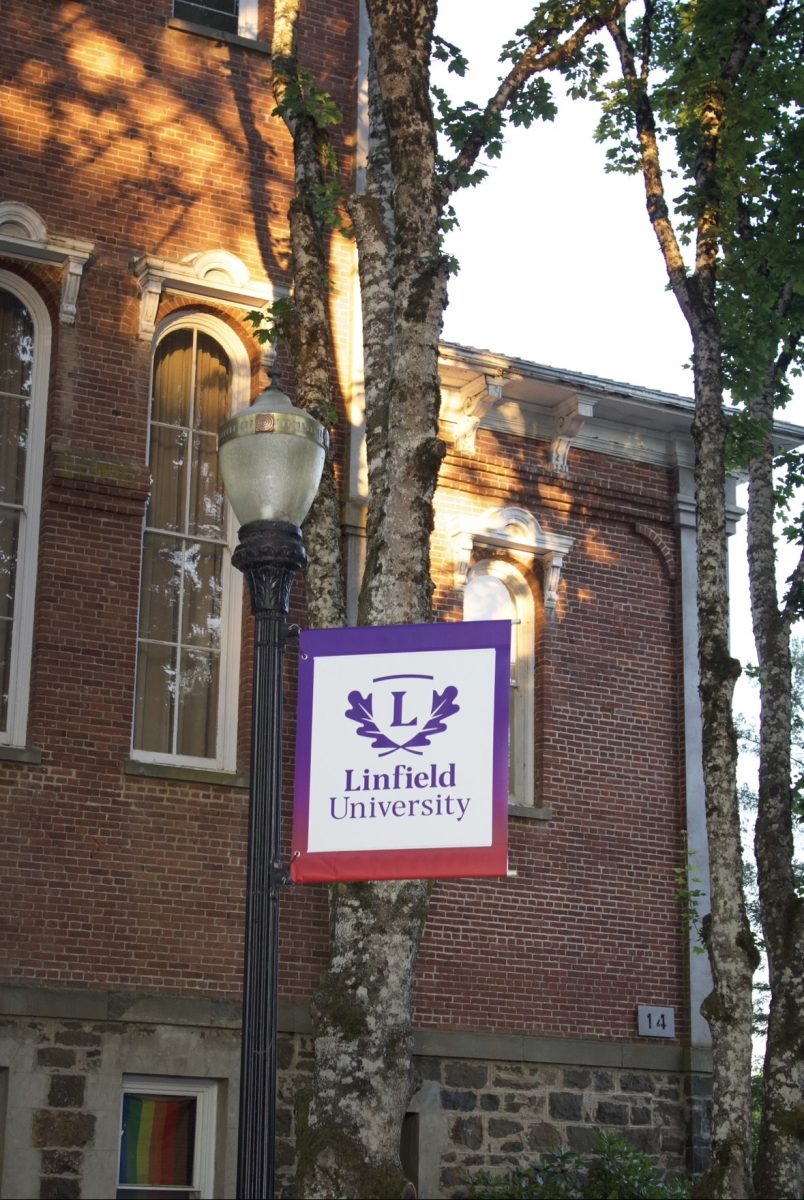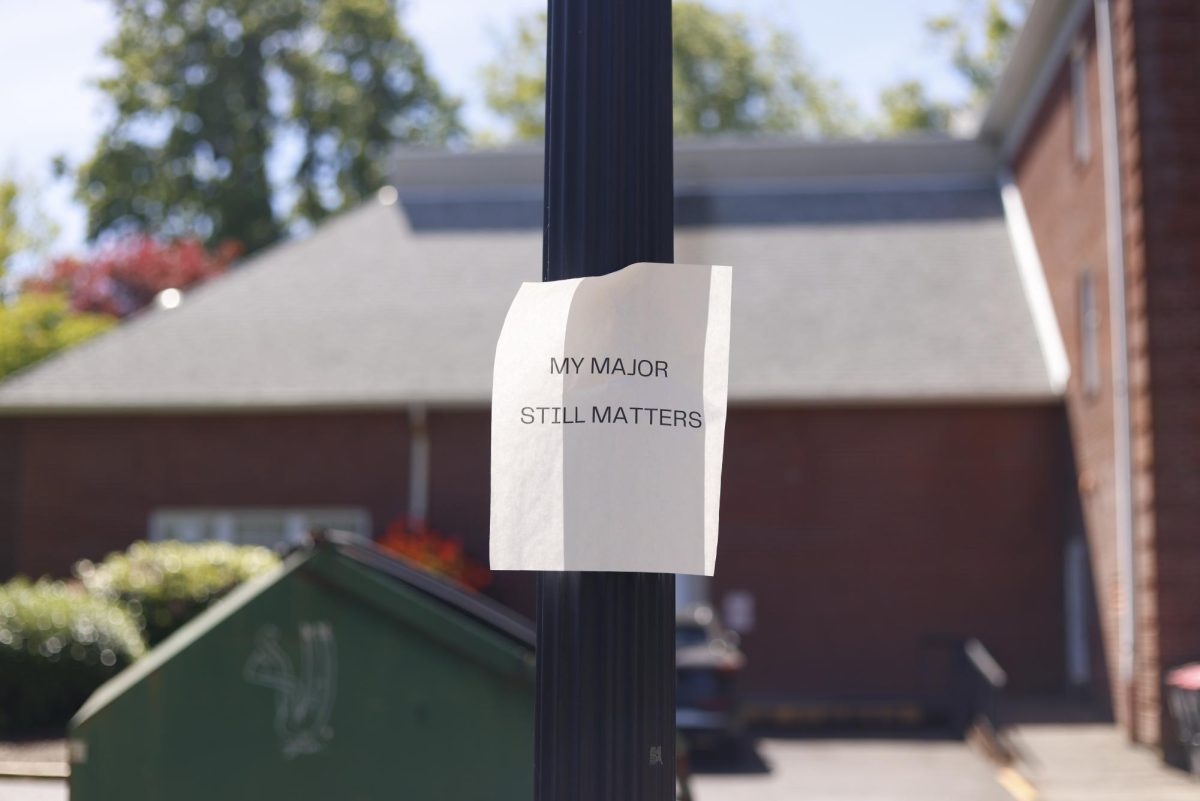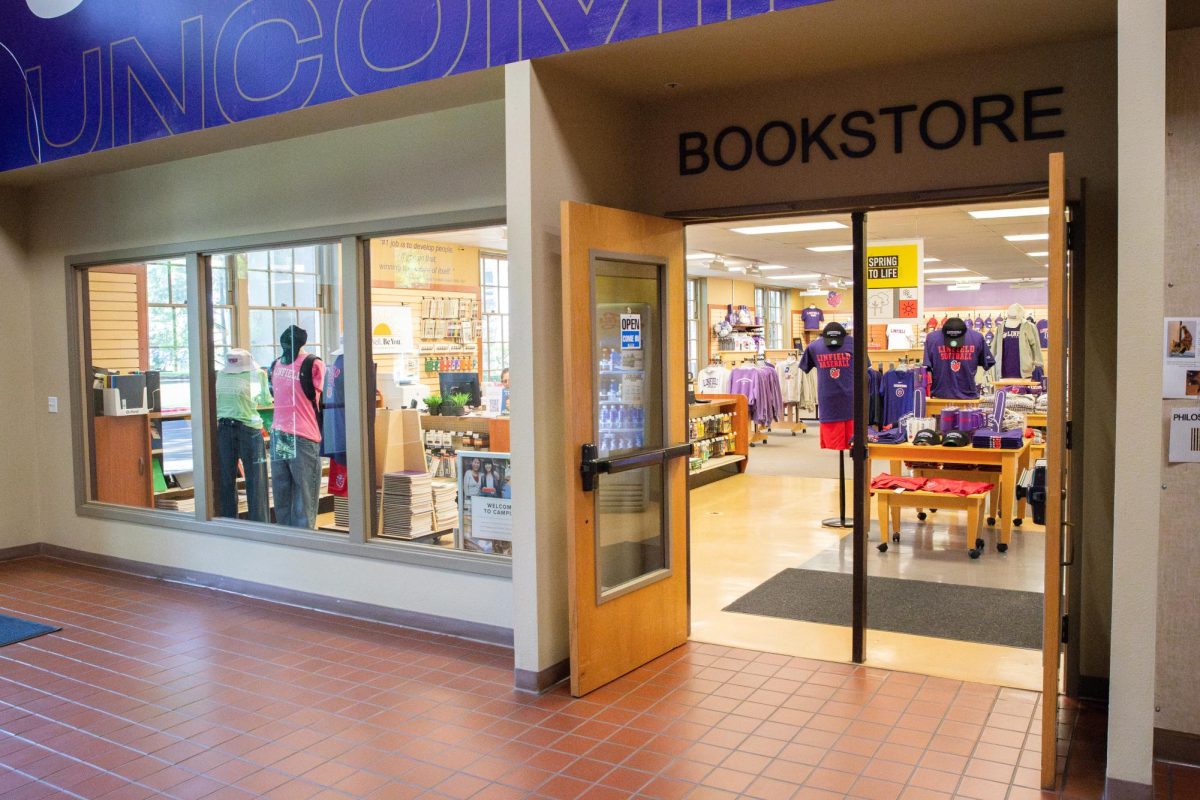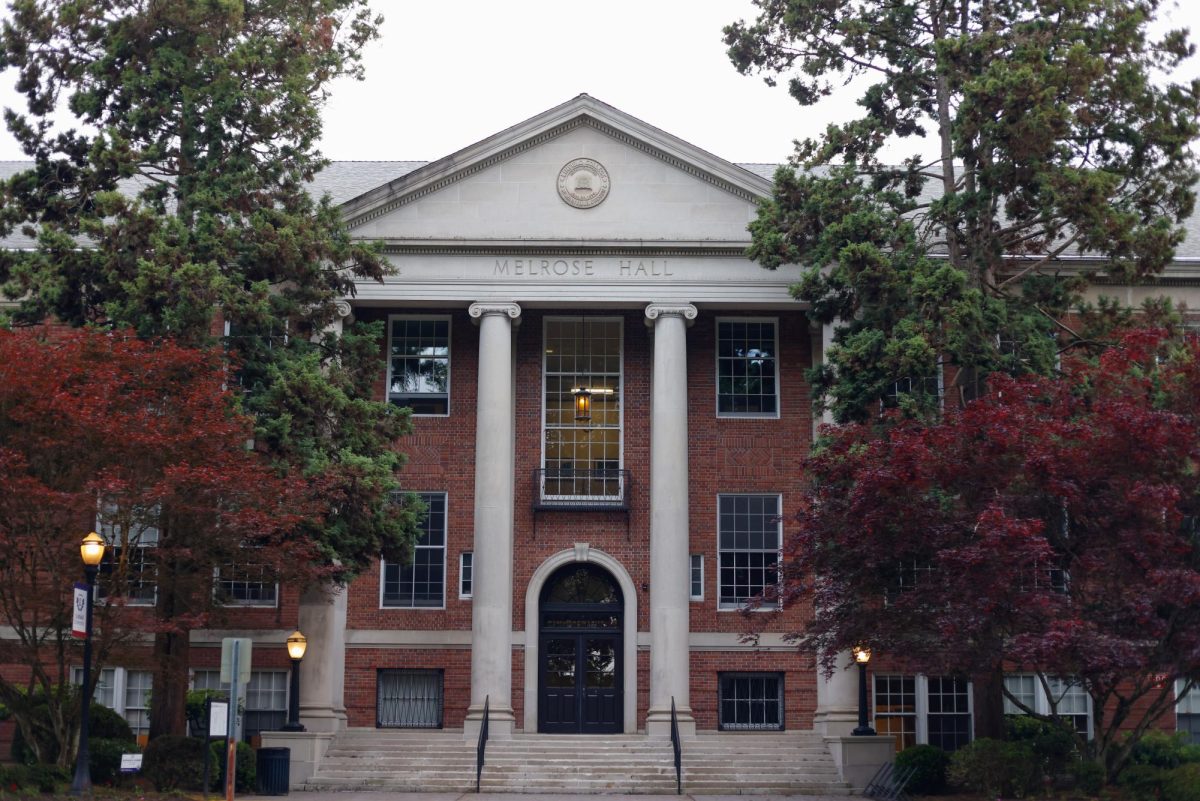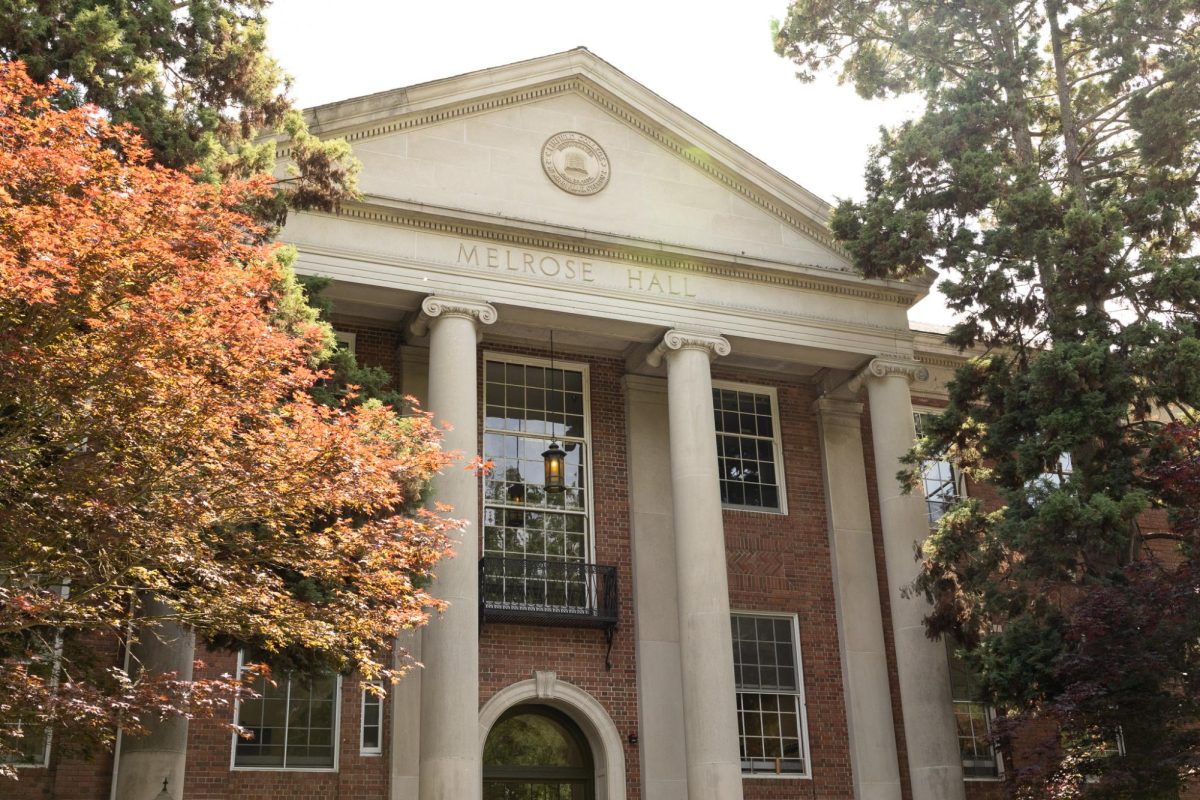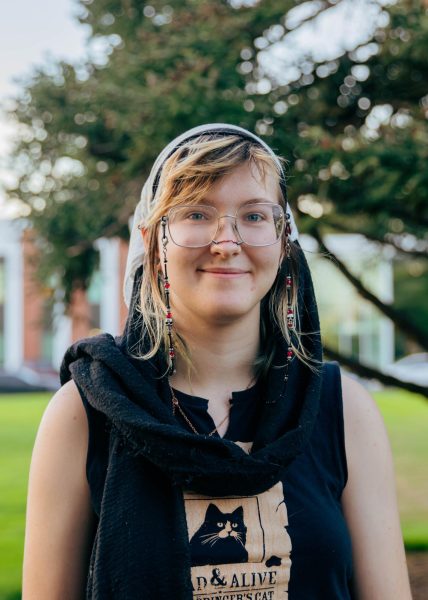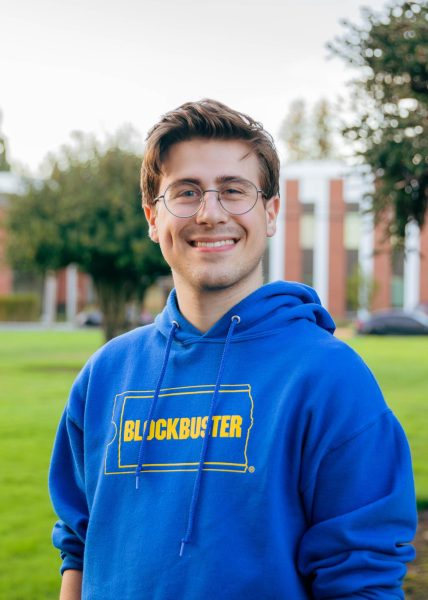Nobel prize winner Randy Schekman was invited to speak at Linfield to share his scientific career with students as part of Linfield’s Oregon Nobel Laureate Symposium. He delivered a keynote speech on April 10 at 7:30 p.m. in Ice Auditorium, preceded by two other talks about his life and research. He won the prize in 2013 for his discovery of vesicle traffic in cells, which is the process that allows cells to secrete enzymes, waste products and more.
“Our goal today is to have an informal discussion with Dr. Schekman and talk about how he got into science and what he recommends to young people trying to get into the sciences,” Physics Professor Michael Crosser said at the first of Schekman’s three talks.
Schekman spoke about how he was exposed to different styles of scientific study. First, cell biology, which was focused on observation.
“…It was cell biologists looking at things using microscopes, either electron or optical microscopy, and it was very descriptive, what you could see when you broke cells open, was all you could say,” Schekman said.
The other discipline that he was exposed to, biochemistry, was focused on an in-depth understanding of biological processes. Schekman trained in a lab alongside a man who subscribed to this type of thought.
“He was a very different kind of scientist, a complete reductionist,” said Schekman. “It only meant something to him if it was an enzyme that could be isolated and studied chemically.”
According to Schekman, both disciplines greatly influenced him in his career.
“I decided that what I wanted to do was somehow take a blend of those two schools, one was cell biology, the other was biochemistry, to develop a mechanistic understanding of this obviously important but very complicated process of protein secretion.”
This creativity paid off, and he eventually discovered 20 different genes involved in the protein secretion process.
Along with sharing about his scientific research, Schekman gave students some advice. He says it is incredibly important for students with an interest in scientific research to get experience early.
“If you’re not working on something that’s on the cutting edge, you don’t know what it’s like to be a real scientist,” Schekman said. “Frankly, it’s not for most people; it takes a lot of patience, and most things don’t work.”
However, Skekman stressed that not every scientific career needs to involve research.
“There are many career opportunities,” Scheckman said. “You could become a physician, you could become an entrepreneur, there are many alternatives, which is not true of some professions.”
When it comes to research, a Ph.D. is a common path that students use to get deeper into the field of science. Ph.D. programs are highly selective, and completing them is difficult, but Schekman, as a professor himself, shared what Ph.D. programs look for in students who are interested in pursuing their academics in this direction.
“I mean, we look at grade records, we used to look at GRE exams, but I don’t put much stock in these standardized tests,” Schekman said. “I look at research experience because you don’t have to publish papers, but you have to have done enough to have your mentor know your passion and your skill set.”
Now, Shekman is focused on funding research for Parkinson’s disease. After his wife passed away due to complications with the illness, he founded the organization Aligning Science Across Parkinson’s, with the goal of making advancements in the treatment of Parkinson’s disease.
“In the 200 years since Parkinson’s was first understood as a syndrome, nothing has been developed that changes the arc of progression of the disease,” Schekman said. “You can blunt some of the symptoms, but you do not delay progression.”
One major goal of this organization is to develop something that will delay progression, rather than just treating symptoms. Schekman believes that, in order to accomplish this, collaboration is a requirement.
“When you have a really tough problem, there is a barrier that academic scientists have, which is that the reward structure that favors individuals like me winning prizes like the Nobel,” Schekman said. “We funded teams of investigators who came to us with a proposal showing that these teams had, at their core, already engaged in collaborative science.”
The Oregon Nobel Laureate Symposium brings Nobel Prize winners to colleges across the state to share their knowledge and experiences with the community. It has been held here at Linfield in the past, made possible by donors, and each lecture is free and open to the public.


